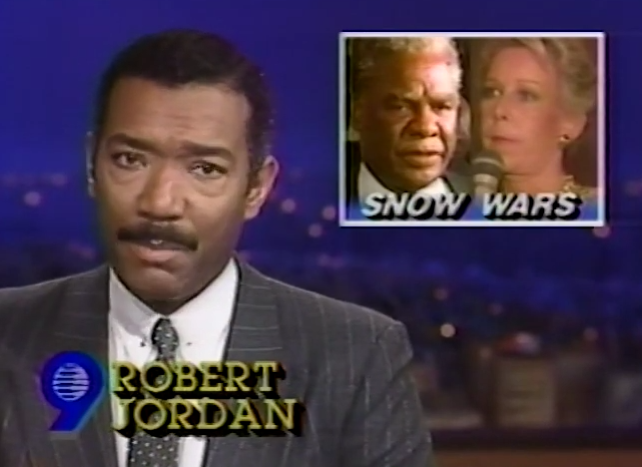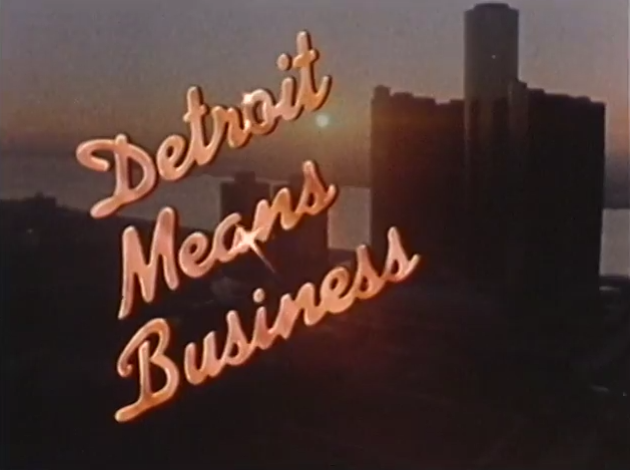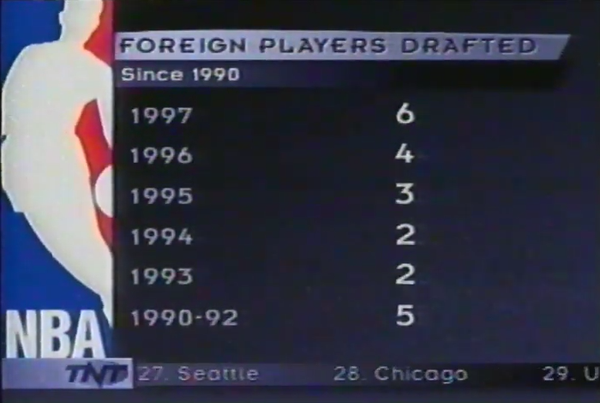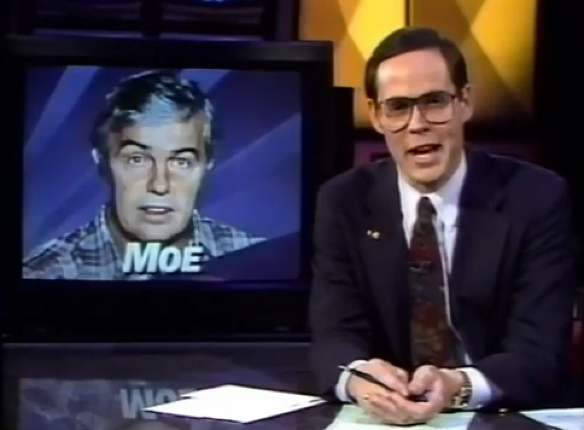What if butterflies flap over Boston?
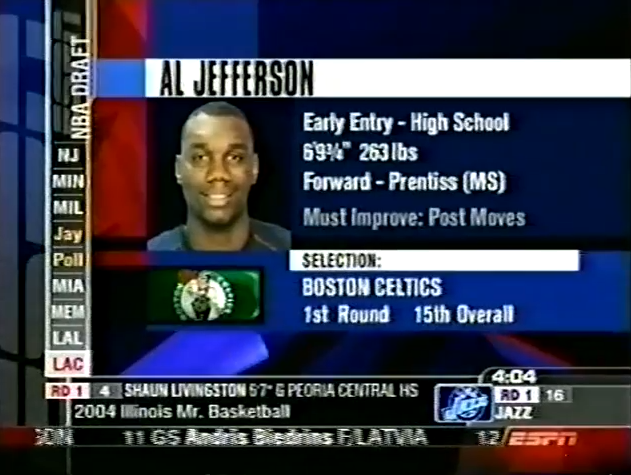
Picked up and enjoyed a copy of Peter May's 'Top of the World,' which detailed Boston's 2007-08 title. It took me longer to write this hack What If column than it did to read the book, which is a pleasant must-have for Celtic fans.
For the rest of us? Great slop before the book gets to the boring (basketball and brotherhood, yawn) parts. Many missed connections, trades which worked, trades which fell.
Let's make some shit up.
WHAT IF BOSTON GETS ITS PICK?
If the Celtics rolled for the No. 2 selection in the 2007 draft, as odds suggested, May reports then-GM Danny Ainge would follow through on Boston's designs to deal Paul Pierce (30 by training camp) for more suitable talent to surround obvious draftee Kevin Durant (18 on draft night).
The SuperSonics grabbed the second pick instead, but in our fake scenario, Seattle's scheme becomes Danny's directive. Instead of dumping expiring contracts and mid-level lottery picks for veteran talents like Kevin Garnett and Ray Allen, Ainge instead settles on which team badly needs a mid-prime scoring superstar with four years left on his contract.
Or, which team craves payroll relief.
The ball-palmin' Paul Pierce is no seamless fit within Steve Nash's Phoenix Suns, but Phoenix isn't after a basketball deal. The Suns sought to cut salary in the summer of 2007, dangling Amar'e Stoudemire and Shawn Marion and eventually moving big man Kurt Thomas (much-missed by Phoenix) to Seattle along with a pair of future first-round picks (for taking on Thomas' contract).
In reality, Phoenix offered Shawn Marion (in a cost-cutting move) to Boston in exchange for Theo Ratliff's expiring contract (probably plus taking on Thomas' deal). In fakery, with Durant in place, Boston has no need for Marion and sends Pierce to Phoenix for KT's salary and Leandro Barbosa and those two Phoenix phirst-round picks. Scuttling Seattle, twice.
Ainge could then swap Wally Szczerbiak and Theo Ratliff's large expiring deals around in three-team scenarios, perhaps landing Ainge some of his Eugenics favorites (Robert Swift, Patrick O'Bryant, Luke Ridnour, maybe taking Marquis Daniels off Indiana's hands), or trading into Anderson Varejao or Gerald Wallace's contract negotiations.
A frontline of rookie Durant, Al Jefferson and Kendrick Perkins would do a little damage in the 2007-08 East, perhaps not a playoff spot but certainly a charge out of the depths of the lottery. Delonte West and Rajon Rondo man the backcourt, Tony Allen is on the mend from his ACL tear, this is a bit of a team. By declining a deal for Durant, the Celtics have their own future first-round picks and also Minnesota's top-three protected 2008 first-round pick.
This is how we pair Stephen Curry and Kevin Durant.
Sam Presti not only misses on Durant, but also the opportunity to deal and swing and take chances (Serge Ibaka, arguably James Harden and Russell Westbrook, uh, Byron "B.J." Mullens) with a cache of future first-rounders to fall back upon.
Sam still has Ray Allen to deal, and cap space to craft upon Rashard Lewis' departure for Orlando, but the SuperSonics' fortunes are our victim. I hope Presti, leading his first NBA draft, doesn't choose Yi Jianlian with the No. 5 pick. Maybe Presti can send Ray Allen to Minnesota for the No. 7 selection and Marko Jaric's contract and some (way) future firsts, after Minnesota's 2008 first-rounder is spoken for.
If Boston earns No. 2 in 2007, the rest of the NBA is stuck with second options. Minnesota wants to deal Kevin Garnett, but with Boston out of the running, Garnett wants no part of a flip to the Amar'e Stoudemire-less Suns. Garnett said as much in 2007, in reality KG had to be talked into moving on to play with Pierce and Ray Allen in Boston, fearing he'd be viewed a quitter by Timberwolves fans. The Suns want no part of paying three superstars (Nash, Pierce, Stoudemire or the available Ray Allen or Garnett), only two.
However, this is where Ainge and Minnesota GM Kevin McHale go to work for each other, and expand the original fake Boston/Phoenix deal to rebadge Minnesota and free Miami from Antoine Walker.
Pierce to Phoenix with Theo Ratliff's expiring deal, Stoudemire to Minnesota (to pair with KG), Antoine Walker and Barbosa and Kurt Thomas to the C's, $3 million in Miami money to Minnesota. Boston's third acquisition of "Because There Are No Fours" is merely a crowd-pleasing holdover, Walker comes with a large expiring contract which could be moved along at the 2009 trade deadline.
Ainge earns picks from Phoenix, Miami, Minnesota to surround Durant and Curry and Al Jefferson and Tony Allen and Delonte West and Gerald Green and Rajon Rondo and Kendrick Perkins.
Boston makes two NBA Finals with this foundation, losing each time.
WHAT IF PORTLAND GETS PIERCE
By January 2005 I'd written for SI.com for four months, plopped 30 2004-05 season previews and two columns per week, and they decided to give the kid (a 24-year old man who'd recently moved into his parents' basement) a byline, a photo, an archive. The first column to go up under those banners? Why the Celtics should trade Paul Pierce. Boston's blogosphere, crackling by 2004-05, was not happy with my idea, my byline, my photo, my archive.
According to May, however, it nearly happened: Pierce to Portland at the 2005 NBA draft, in exchange for the No. 3 pick, whereupon Boston selects Chris Paul.
Paul instead went No. 4 to New Orleans. Nobody at the time could find a reason why Paul shoulda fallen below Atlanta at No. 2, where the Hawks chose Marvin Williams in spite of employing Josh Smith and Al Harrington and Josh Childress at the small forward position and only Ty Lue (and over-with Kenny Anderson) at point guard. At least Atlanta took Shelden Williams with the fifth pick a year later.
But if Portland sends Theo "This Guy is Everywhere" Ratliff and the No. 3 pick to Boston for Pierce and Raef LaFrentz and Boston's No. 18 pick? The Blazers select, say, Jarrett Jack?
Portland, with Zach Randolph and Paul Pierce up front alongside Juan Dixon (fourth season but already 27), Steve Blake (third season but looks 37), Sebastian Telfair and Joel Przybilla ... this is not a good team. Yet better than the real one, featuring Martell Webster.
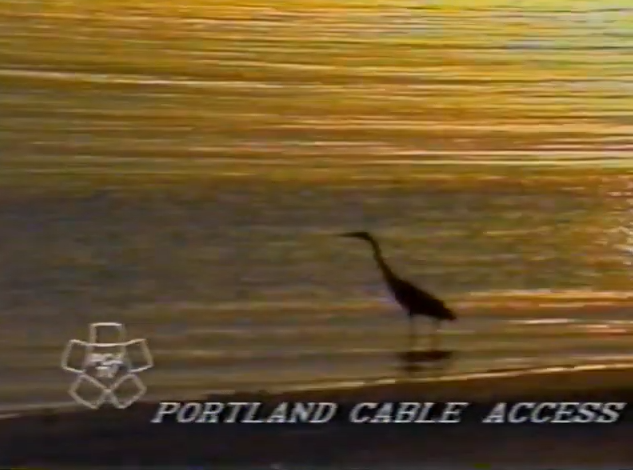
The Trail Blazers instead dealt the No. 3 pick to Utah (who chose Deron Williams) for the No. 6 selection (Webster).
Utah had the rights to Dallas' first-round pick in 2005 (Mark Cuban really wanted Pavel Podkolzine) and sent Portland that choice, a No. 27 selection (Quin Snyder favorite Linas Kleiza). Plus Detroit's first-rounder (earned for taking on Elden Campbell's contract) in 2006 (Joel Freeland).
Portland was offered Paul Pierce for No. 3 or two first-round picks to move down three slots and yet the Blazers never conceded, huh, consensus considers this No. 3 selection valuable, maybe we should keep it.
Instead, Portland copped the coveted Webster and dealt Kleiza (AND THE RIGHTS TO RICKY SANCHEZ) to Denver for No. 22 selection Jarrett Jack (who, technically, played the same position as Chris Paul and Deron Williams). But if Portland GM Kevin Pritchard was swayed by adding an All-Star?
Then Boston steals Chris Paul to pick and roll with Al Jefferson, Tony Allen, Kendrick Perkins, Delonte West, Brian Scalabrine, and Ricky Davis.
This Celtic rotation, with zero alterations, wins eight of the next 11 NBA championships.
WHAT IF, KEDRICK BROWN?
The 2001 first-round pick cost the C's, thrice.
The pick, to start: Kedrick Brown – who? – at No. 10. Plus picking the pick itself (pick coulda been parlayed to 2002 or 2003). And then keeping the pick past Kedrick Brown's first trade deadline in 2002.
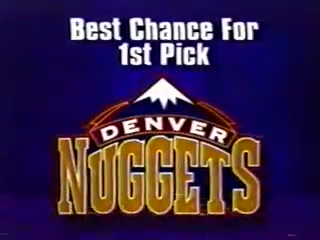
Boston's 2002 Joe Johnson trade – GM Chris Wallace jettisoning the rookie in at the trade deadline for win-now help in the form of Rodney Rogers and Tony Delk – was just as controversial at the time, if utterly understandable. Boston had a real chance at the Finals in 2002 and Johnson worked the same position as fourth-year ultrastar Paul Pierce. Not only that, but Johnson was one of three first-round rookies on Boston's roster with Joseph Forte and Mr. Kedrick Brown, ideally Boston had at least one to give up.
Most wrote Forte off midway through Year One, but the burly Brown still held two-way appeal at swingman despite missing more than two-thirds his shots and finding himself in and out of Jim O'Brien's rotation. Brown made 23 field goals in his rookie season, some memorable, and Peter May states that Chris Wallace chose to keep Brown over Joe Johnson (a two-time All-Star by the time this book was published).
Huh. Sounds unrealistic in 2002, it doesn't scan that even the cash-strapped and rebuilding Suns would accept Kedrick Brown (who made $80,000 less than Johnson) for Delk or Rogers, let alone both. All I can provide is context!
It feels off, like a source attempting to pile on Chris Wallace, who was by 2008 running the Grizzlies. The idea, even in 2002, that Phoenix sought Kedrick Brown and the Celtics talked them down to Joe Johnson? Or that it was a coin flip? I promise this ain't no retroactive sheen, cribbed from 2002 Celtics message board reaction.
Again, the Rogers and Delk acquisitions gave Boston a chance at an Eastern title. Joe Johnson and Paul Pierce did many of the same, Hall of Fame, things. But if the C's truly chose Kedrick Brown (who emerged from a month's inactivity to start in a Celtic victory over the Lakers the day before the trade deadline) over Johnson (6.3 points per game in 21 minutes per outing with Boston at age 20, DNP in the Laker win), then Chris Wallace did badly whiff.
As he did choosing Kedrick Brown in the first place. Not simply choosing Brown, although Boston did blow that (Richard Jefferson and Zach Randolph were right there and yes I thought Zach was the shit), but choosing at all.
See, ol' Boston boss Rick Pitino did trade for first-round draft picks. Pitino traded away plenty, but did acquire one from Denver during the summer of 1999 in a deal which swapped Danny Fortson for Ron Mercer.
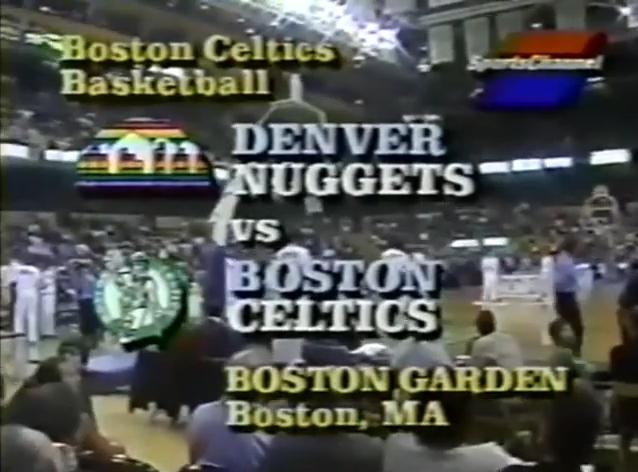
Denver were perennial slumdogs at the time, yet the fin de siècle protections Nugget GM Dan Issel outlined for the next-century pick (in exchange for Mercer, a free agent, traded after 37 games) were weak. The first-rounder Denver owed to Boston was protected top 5 in 2001, top 3 in 2002, only for No. 1 in 2003.
The 2001 NBA draft was Chris Wallace's first as full-time personnel chief (Rick Pitino resigned five months prior) and the new boss decided he liked what he saw in the 2001 NCAA Tourney, and wanted to take that Nuggets' pick as soon as he could. Not boss' best move, because the Nuggets won 40 games in 2000-01, Chris Wallace giving it all up for a No. 10 pick. Obligation out of the way, Denver tanked hard in 2002 and 2003 and ended up with the No. 5 (Nikoloz Tskitishvili) and No. 3 (Carmelo f'n Anthony) selections.
Boston's own pick in 2001 was No. 9, Joe Johnson, and the C's owned the rights to Utah's No. 21 pick, earned when Pitino three-way traded for the selection one summer prior (Utah earned Donyell Marshall and Golden State picked up Fortson).
With three picks in the top 21, Wallace drafted 152 total Celtics games between Joseph Forte, Joe Johnson, and Kedrick Brown. Delk stayed for another year, Rogers left as a free agent after Boston lost to New Jersey in the 2002 Eastern finals, the Celtics' first such appearance in 14 years.
If Boston passes on the Denver pick in 2001, the Nuggets take (Pete Newell favorite) Troy Murphy No. 10 overall because (Pete Newell favorite) Kiki VanDeWeghe is in charge. Denver continues to claw with win-now lineups: Nick Van Exel, Juwan Howard, free agent acquisition Avery Johnson and ancient Calbert Cheaney all play big minutes in 2001-02. The Nuggets stink, Boston has a chance at a No. 5 choice in 2002 but Boston, in the middle of an ownership switch and pining for a greater pick in 2003, passes on the commitment.
Denver can't tank for Carmelo in this scenario, Kiki keeps pushing, deals James Posey and Murphy and Juwan Howard and a pick to Milwaukee for Ray Allen at the 2003 trade deadline. Denver never hears of "Vincent Yarbrough," there are no Junior Harrington visits, Donnell Harvey does not get to miss half his dunks.
Denver wins a little more, earns the No. 6 choice in the 2003 draft, where the Celtics select T.J. Ford.
Bulls get the No. 3 pick and Carmelo, which turns out complicated.
WHAT IF MCHALE DOESN'T CARE
One of the ongoing explanations for Minnesota chief Kevin McHale's decision to send Kevin Garnett to McHale's former team in Boston is the idea that the Minnesota GM did not want his Wolves to face Kevin Garnett four times a year, preferring twice per season against an Eastern Conference foe.
McHale said this in 2007 and it is confirmed in the book, as if the difference between Garnett visiting Minnesota once (with the Celtics) or twice (with a Western Conference foe) should make any difference in which franchise-altering trade to choose for the outgoing franchise player. Yet McHale didn't worry about Minnesota looking minor league, or at least Kansas City Athletics-like, setting up big-time Boston for success.
Let's say McHale anticipated the backlash, and that he realized making his 1-of-30 NBA franchise worse due to a single home date per season is rather bush.
This doesn't make KG available to 29 other teams, the eight-time All-Star rode with leverage. Garnett did not own a no-trade clause but he did work under an expiring contract, and could be a free agent after 2007-08. Signing an extension was requisite for Boston, who did not want to dump good players and draft picks on Minnesota only to watch as Garnett (who as May noted already worked more career minutes than Larry Bird) took less money from the Lakers or Clippers in 2008 to play near his home in Malibu.
Phoenix was after payroll relief, not Kevin Garnett, and wanted to deal Amar'e Stoudemire for Garnett. KG did not want to play for a Suns team without Amar'e Stoudemire, and while I can see then-Suns owner Robert Sarver dealing for Garnett anyway (using his 2008 free agency as an excuse to cut even further salary), let's not grow cynical.
Here's the problem with this: Kevin McHale made a great trade.
Al Jefferson gave Minnesota 82 games of 21 and 11 right off the bat in 2007-08, at nine years younger than the 31-year old Kevin Garnett.
KG's salary was the league's largest (fifteen percent over Shaq) and due for exponential increase, Boston's group of expiring contracts extinguished that burden. Minnesota owed a 2008 first-round pick to Boston from a previous trade and got it back in the Garnett transaction, McHale also picked up Boston's first-rounder in 2009. There wasn't a better deal out there.
Phoenix is out. The two-man Rockets were too top-heavy to deal with, Clippers have nothing to trade, Grizzlies (Pau Gasol hadn't asked out yet) and NOLA and the Kings are broke, Nuggets are a no: Minnesota wouldn't settle for Nenê, Denver wouldn't give Nenê up, KG would want to be play with Nenê, anyway.
Garnett isn't re-signing with the Ben Wallace-led Bulls if Chicago parts with rookie Joakim Noah, Second Team All-Rookie Tyrus Thomas, and 19-points per game Luol Deng. Jerry Reinsdorf had all of 2006-07 to turn P.J. Brown and Andres Nocioni and Deng and draft picks into a superstar, Pau Gasol or KG, and Jerry Reinsdorf passed. McHale doesn't make that deal anyway, he never played for Chicago.
Mark Cuban didn't mind spending money to win, the Mavs were in the Garnett bidding but, in KG's parlance, Mark did not have enough reserve ammo. Garnett was not going to peer fondly over a Mavericks team now missing Josh Howard and Devin Harris and possibly Erick Dampier, with Dirk Nowitzki working Garnett's position. Plus, Kevin McHale never played for the Mavericks.
The Lakers? Discussed at the time: Minnesota respected but didn't need Lamar Odom's contract and said so, even if it meant getting Andrew Bynum. Neither KG nor Kobe Bryant (conniving his own trade demand that summer) would enjoy a Ronny Turiaf/KG/Luke Walton frontcourt. Also, the Celtics and Lakers are big rivals, and that matters to Minnesota's GM.
Where do we go? Same place as considered in 2007. Kevin Garnett is a Warrior.
GSW sends Adonal Foyle to Minnesota, Jason Richardson to Charlotte. Charlotte drafts Joakim Noah and sends him to Minnesota. Robert Swift and Ray Allen head to Golden State with (Minnesota contract) Troy Hudson, Seattle gets Monta Ellis, the SuperSonics take on Patrick O'Bryant and Minnesota's 2010 first-rounder. Minnesota picks up Sean May and Adam Morrison from Charlotte and (GSW first-round pick, McHale choice) Javaris Crittenton. Golden State gives up its 2009 first-rounder to Minnesota.
Bulls draft Spencer Hawes, natch, Brandan Wright falls to Sacramento at No. 10, is considered the "steal of the draft."
The problem? Kevin McHale didn't play for any of these teams.
WHAT IF DANNY DOESN'T HELP DETROIT?
Ten days before the 2004 trade deadline, Atlanta traded Shareef Abdur-Rahim, Theo "This Guy" Ratliff and Dan Dickau to Portland for Rasheed Wallace and Wesley Person.
Danny Ainge didn't have to give Detroit a championship in 2004.
He could find it distasteful, earning a low-rung first-round pick for taking on the three-way salaries (Lindsey Hunter, Chucky Atkins) necessary to move Rasheed Wallace from Atlanta to Detroit. Ainge coulda held out. After all, his Celtics were a playoff team in 2004, the Pistons were technically a rival.
That rivalry ended when the Pistons acquired Rasheed, Detroit ran up an immediate 17-5 regular season mark with Wallace in the lineup, losing thrice by a single point. A 2004 title four months after the trade.
What if Danny Ainge refuses to take on the salaries of Hunter, Chucky?
Boston doesn't pull Detroit's No. 25 pick and draft Tony Allen, to start, but it also means Rasheed is stranded in Atlanta, which the Hawks (who acquired Rasheed to move him) did not anticipate.
The Hawks don't draft Josh Smith with the 2004 pick (via Detroit and Denver and Milwaukee) earned for Rasheed.
Milwaukee lost its 2004 first-round pick in a 2001 cost-cutting move, trading it to Denver with Scott Williams.
Denver lost the pick because dumb, dealing for Detroit sophomore Rodney White ahead of 2002 training camp after White (a No. 10 pick) proved spectacularly incapable of NBA basketball during his 2001-02 rookie season.
If Ainge decides he doesn't want to facilitate a monster in his own Conference, that a low-20s first-rounder ain't worth it, then Detroit has a problem on its hands, Atlanta has a Rasheed, bummer for Boston.
Ainge was willing to take on the final two-plus seasons of Atkins' contract ($8.7 million total) for $3 million and the pick which turned into Tony Allen. Ainge moved Atkins' to the Lakers (Los Angeles in a luxury tax bunch) during the next offseason for what turned into the Rajon Rondo selection. All while pushing the Celtics back into the playoffs with Pierce.
What if Ainge's boss says "nup" to Chucky, Hunter? San Antonio has Ron Mercer's expiring deal to move, would they take Atkins and Hunter for an extra (Tiago Splitter) pick? Would the Pacers do it to move off Austin Croshere's contract? What about the Cavs, turning Dajuan Wagner and Eric Williams' expiring deal into a first-rounder? I am trying to only pick teams extremely close to Rasheed Wallace's Detroit Pistons.
What? "Eric Williams" means it is time for bed? "Austin Croshere" means we've been up too late?
HOT MALLETS
I love watching people play with mallets. Whatever instrument they're hitting the mallets with. Hot mallets.
I hope Mark Deeks and Larry Coon don't read this column.
I tried my best to make all salaries work but I don't have a time machine. And if I did have a time machine, I wouldn't use it to check RealGM's 2005-era trade machine. I'd use it to kill Cartman, apparently.


